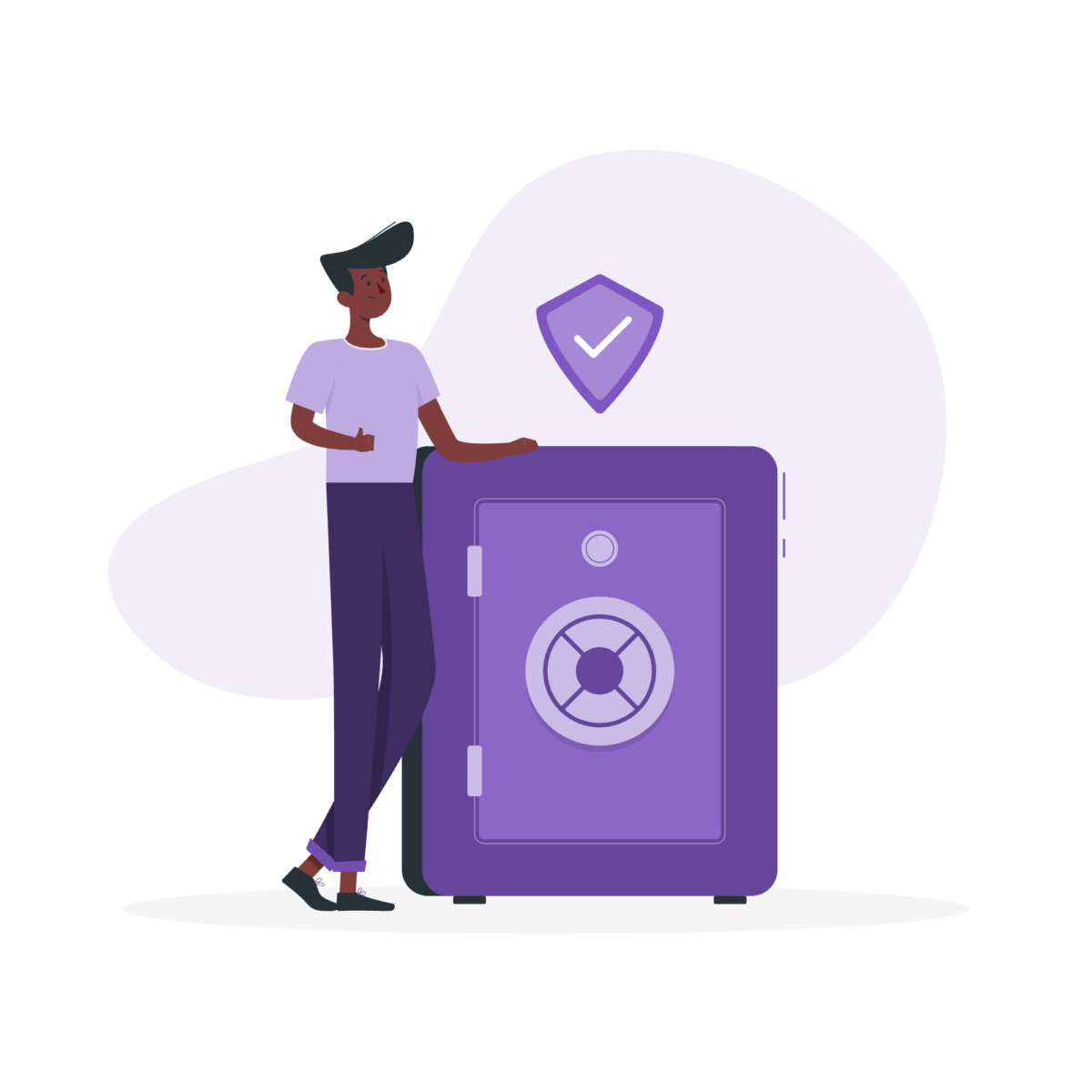Let’s face it, organizing an event is no piece of cake. It demands careful planning and strategic thinking.
A crucial element? Event privacy. No planner can neglect data privacy, cybersecurity, and data protection for events.
The landscape of data protection laws is changing fast. Take California: the California Consumer Privacy Act (CCPA) puts power back into the hands of consumers.
And it’s not just California. From GDPR in Europe to PDPA in Singapore, privacy laws are shaping how event planners handle personal data.
In the midst of all this, cybersecurity threats are skyrocketing. From phishing to ransomware, it feels like navigating a minefield. Cyber threats can result in serious data breaches, causing damage that’s hard to undo.
Take a breather, we’re here to help. Our guide will outline common event privacy challenges and how you can avoid them.
Not limiting access to private virtual events
Table of contents
- 1 Not limiting access to private virtual events
- 2 Being hush-hush about data collection
- 3 Distributing personal information without consent
- 4 Leaving the door open for identity theft
- 5 Keeping data forever
- 6 Overlooking employee access to sensitive data
- 7 Forgetting third-party data security
- 8 Take the stress out of event privacy
Keeping a lid on your virtual event’s privacy can feel like playing a high-stakes game of chess.
Potential party crashers can cause all sorts of chaos. You risk the spread of false information, interrupted schedules, and inappropriate content.
What’s the best-case scenario here? Tainting your event’s reputation and jeopardizing the engagement of your target attendees.
Worst case? Uninvited guests could gain sensitive data, like attendee contact information or confidential content. That’s a serious violation of data protection for events.
Solution:
- Invest in event management software with strong event privacy controls and registration rule features.
- Consider using access links or codes to lower the risk of uninvited guests.
- Curate a ‘VIP list’ of pre-approved attendees with a registration approval process. Review any extra registration requests.
- Send personalized invitations or unique, one-time-use tickets (or links).
Being hush-hush about data collection
In our hyper-connected world, being transparent about data collection is non-negotiable. Your attendees have a right to know what kind of data you’re collecting and for what purpose.
If attendees feel their data is being misused, they might withdraw their participation. They could also spread negative word-of-mouth, harming the event’s reputation and affecting participation levels for future events.
Not being transparent about data collection can also lead to legal trouble. Regulations such as the California Consumer Privacy Act (CCPA) mandate clear communication about data usage. Noncompliance could lead to hefty fines and serious legal consequences.
Solution
To tackle this and ensure data privacy for events, there are a few steps you can take:
- Clearly state in your event registration forms what data is being collected and why.
- Regularly update your attendees about their data rights and choices. This helps build trust and keeps everyone informed.
- Make sure your event privacy policy is easily accessible and understandable. Use plain language, avoiding any legal jargon.
- Make use of user-friendly tools that prioritize transparency, enabling you to effortlessly communicate with your attendees about the data you’re collecting.
Distributing personal information without consent
Sharing public attendance lists might seem harmless. However, forgetting to get an ok from your attendees, puts you at risk of breaching event privacy.
If you put an attendee’s name on a public list, you’re telling the world they’re coming to your event. That might not sit well with everyone. This can raise concerns about their data privacy for events.
Exposure can lead to unwanted contact from other participants or even non-attendees. Attendees can receive unsolicited messages, infringing on their privacy.
As an event planner, get ready to add extra stress and tasks. You may find yourself triaging privacy complaints or data protection for events issues.
Your time should be spent on delivering a smooth event.
Solution
- Include a section dedicated to data consent during the registration process. It should clearly outline how you plan to use attendee data. Let them know if their data will be shared with event sponsors or used for marketing purposes.
- Provide an explicit opt-in checkbox for attendees to agree to any data usage terms. Double-tick to bolster data privacy for events.
- Consent isn’t a one-time thing. Regularly reach out to your attendees to reconfirm their consent. Offer attendees the option to update their preferences.
Leaving the door open for identity theft
What would happen if your attendees’ data fell into the wrong hands? Without solid cybersecurity for events, attendee data is ripe for the picking.
Attendees entrust you with their personal information when they register for your event. When cybersecurity for events isn’t top-notch, hackers have a field day. We’re talking about identity theft, unauthorized transactions, and other nasty cybercrimes.
As an event organizer, the fallout from a data breach can be a nightmare. Trust is everything in this business. If that trust is broken, your attendees may think twice before signing up for your next event.
Don’t forget the legal side of things, either. As states crack down on data protection, a breach could cost you more than trust. Don’t end your event with hefty fines and legal battles.
Solution
- Regularly update your software systems. This can patch up security vulnerabilities that hackers look out for.
- Use strong, unique passwords. Consider adding two-factor authentication for that extra layer of security.
- Don’t forget about educating your team. Ensure they’re aware of cybersecurity best practices, such as spotting phishing attempts and securing personal devices. Sched offers training for your entire planning team to ensure sure everyone’s aligned with your procedures.
Keeping data forever
If you think holding onto attendee data is a good idea, think again! The longer you clutch onto data, the higher the risk it could fall into the wrong hands. A data breach isn’t just a headache for you. it could lead to a nightmare of identity theft for your attendees.
And guess what? Data protection regulations often block indefinite storage too. Laws like the CCPA are clear – you should only hold onto personal data for as long as you genuinely need it.
Solution
- Be a regular data detective. Review and audit your data routinely. It’ll help you spot and get rid of any unnecessary or old information you might be storing.
- Make sure your team is in the loop about your data retention policy. Clear and regular communication can save you from accidental slip-ups and breaches.
- Automate data deletion for certain data categories after a set period.
Overlooking employee access to sensitive data
You’ve probably heard the phrase, ‘the enemy within.’ Sadly, this threat is a real concern in the event planning world.
Your event team works tirelessly managing registrations, liaising with attendees, and tracking attendance. Each person has access to some level of sensitive data, impacting data privacy for events.
Accidents happen. A stolen laptop or lost phone could cause a confidential data leak. Fast forward to a major crisis that compromises cybersecurity for events.
The fallout? Attendees are up in arms. Word gets out, and your event’s reputation tanks overnight. Say goodbye to the trust you’ve worked so hard to build.
Did we mention the daunting task of damage control to ensure data protection for events?
Solution
- Create a culture of data responsibility. Implement a policy of ‘least privilege.’ Only give employees access to the data they need to do their jobs and nothing more.
- Invest in a secure event management platform that allows you to control who has access to what data.
- Regularly monitor and audit data access and usage. Track any anomalies to stop potential breaches and cybersecurity for events.
- Training is key. Host regular workshops on event privacy practices. Keep your team up-to-speed on the latest rules and best practices for keeping data safe. The more they know, the lower the risk, strengthening your data protection for events.
- Have a contingency plan in place. Despite all precautions, breaches can happen. A solid response plan can spell the difference between a manageable hiccup and a full-blown crisis.
Forgetting third-party data security
You’ve dotted the I’s and crossed the T’s. Excellent! But have you considered third-party vendors?
Ticketing platforms, attendee engagement apps, and event marketing tools all hold attendee data. External platforms can pose a risk to data privacy for events.
What happens if their security measures aren’t up to scratch? It’s like dominos; one falls, and everything collapses affecting cybersecurity for your events.
A weak link can expose your attendee data to serious risks. Imagine doing everything to secure data on your end, only to have it compromised by a third party.
Solution
- Assess third-party data protection policies and practices before partnering with any external vendors. Ask tough questions. Remember, you’re entrusting them with your attendees’ data. You need to know how they plan to ensure event privacy.
- Establish contractual agreements that hold third parties accountable for any data breaches.
- Take a ‘need-to-know’ approach to sharing data with these vendors. Share the bare minimum that they need to provide their service.
- Choose a centralized event management system that integrates several functions in one platform. This reduces the number of third-party platforms, limiting potential data exposure points.
Take the stress out of event privacy
We’ve tackled the big three: event privacy, cybersecurity, and data protection for events.
Getting this right is crucial to stress-free event planning. The consequence of slipping up on attendee data protection is a cry for chaos.
Navigating the labyrinth of data protection laws is a lot to take in. You’re not alone, though.
Imagine Sched as your trusty event privacy sidekick. We help you run events smoothly and keep your attendee data safe.
So, why not give it a go? Sign up for a free trial to streamline event planning while prioritizing event data privacy.








